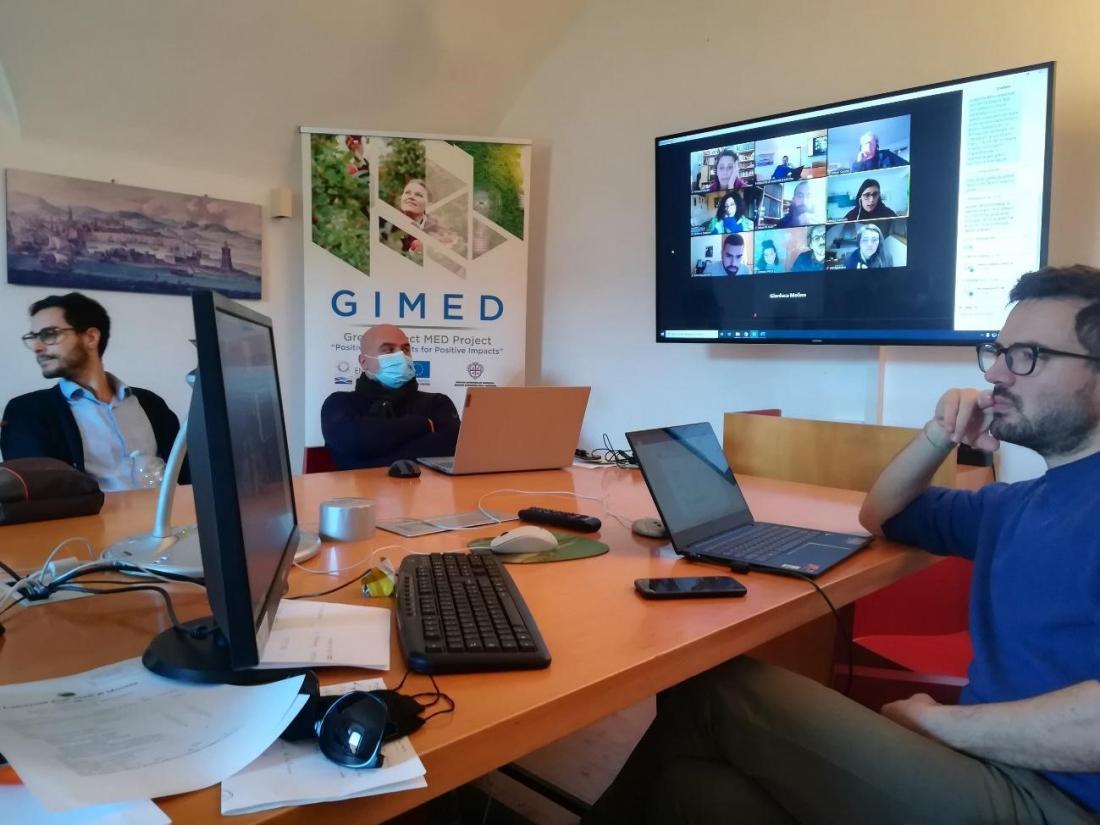GIMED: إنطلاق التدريب الأول لرواد الأعمال الخضراء في صقلية، إيطاليا

المحتوى متاح باللغة الإنجليزية
The first cohort of green entrepreneurs selected received their first training session on 20th and 21st of December 2020, provided by our Italian partner Fondazione di Comunità di Messina.
In total, 31 candidates from 12 projects have shown interest in the training and applied for the call launched at the end of October 2020. From these 12 projects, 8 were able to benefit from the first session of training, and the remaining 4 have been relocated to the next training session devoted to existing and early-stage ventures.
A wide variety of sectors was represented among the projects: 3 were coming from the organic food and agriculture sector, one from sustainable mobility, one from ecotourism, one from renewable energy, one from sustainable textile and one from resource efficiency.
They had the opportunity to receive a high quality training, based on the handbook of the Green Business Model canvas developed by SCP/RAC under the SwitchMed Programme and translated into Italian within GIMED. In the light of COVID-19 emergency, the training was partially delivered via video-conferencing and presencially, respecting the sanitary rules.
One participant per project team was allowed to follow the training on site at Forte Petrazza, while the other members of the project teams would participate remotly through Zoom.
How did the training go?
At first, the participants were introduced to the Community Foundation and the team of trainers; and got to know better the GIMED project and its training. After a presentation on the key concepts of the Green Business model canvas and the training methodology, the participants discussed the outcomes expected from the training and coaching.
Each participant then presented the projects and their sustainable business ideas.
The first afternoon session was consigned to task 1: the in-depth analysis of the sustainable business idea of the candidates. That task was first done individually, then in project groups.
The result of this team exchange was then presented in mixed groups dividing all participants in several classrooms. A trainer participated in each classroom to facilitate the discussion. On the 2nd day of the training, the participants used the PESTEL methodology in order to better identify their challenges and needs and to refine their sustainable business ideas.
An occasion for participants from different projects to exchange their ideas, and to gather new inputs and possible fruitful contacts. Extra tutorial to review the completed tasks and start working on task 4 has been decided at the end of the training. This allows entrepreneurs to better define, structure and prioritize indicators and to start identifying and mapping important stakeholders.
An evaluation questionnaire was sent to all participants to ask about their feedbacks from these first two training days. Based on nine responses received, more than 70% expressed that the concepts, training arguments and training materials were useful for their projects and the explanations given by the trainers were clear to understand. More than 80% rated the contributions of the trainers as highly positive. Some comments insisted on more focused and tailor-made training.







